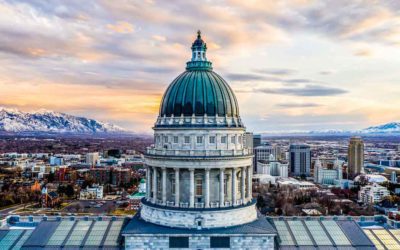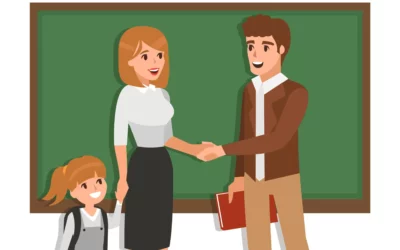
Written by William C. Duncan
May 21, 2021
In 2019, Sudan experienced a remarkable pro-democracy revolution, ending decades of oppressive military rule. The new government is working to unify communities in Sudan and normalize relationships with other nations.
Nasr-Eddin Mofarah is an important part of the new government as minister of religious affairs. He is an Islamic scholar and teacher and as a government official has a reputation for promoting religious tolerance and inclusivity.
Mofarah recently visited Utah and graciously agreed to visit the Sutherland Institute offices to answer questions about his work. Below are excerpts from the interview, lightly edited for clarity.
William Duncan, Sutherland Institute:
Please tell us a little bit about your experience.
Nasr-Eddin Mofarah, Sudan minister of religious affairs:
I am from an area in the state of White Nile in Sudan. I graduated university and I worked as a teacher and I worked in civil society organizations, in civil rights and humanitarian organizations. Our priority was to educate people in regards to their rights and to help the needy. Also, I was an imam at a mosque. I struggled against the former regime and I would invite others to join me in the struggle and to rise in the revolution. So, I was imprisoned more than once, and I was tortured by the security services. In the journey toward achieving our hopes, we resisted letting go of our ambitions, and our faith and persistence was not shaken until we emerged victorious.
Duncan:
Could you tell us a little bit about your role as minister of religious affairs?
Mofarah:
The Sudanese revolution was a revolution that happened on behalf of the Sudanese citizens. Its objectives were clear and they were threefold: freedom, justice and peace. We did not look for food or drink, but we did look for these humanitarian principles. We know that the human is a spirit and not simply a body. As such, the role of the Ministry of Religious Affairs has a great role for several reasons. The degree of spirituality in Sudan is high and there are different religions in Sudan. There’s Islam, Christianity, and other local religions. So how do we manage this diversity? As such, this ministry now stands equal distance apart from all these religions.
So we work with people of faith. We met with them and we reflected to them the vision of the new ministry, and with regards to how the religion can be an encouragement for a new and better society as it is what holds people true and on the correct path with regards to equality and justice and gives them the freedom to be entrepreneurs. We agreed upon these principles and we advanced. Sudan, at one point, was on the state sponsors of terrorism list, and one of the reasons for that was these restrictive laws that restricted freedom including religious freedoms in Sudan. Changing that was our priority, so we worked to annul these laws and regulations and we concretized the religious freedoms laws into the constitution. That is the role of the ministry.
Duncan:
What is the role of faith as it relates to community, economics and culture in Sudan?
Mofarah:
Life is built on trust, hope and well-being, and it’s built on equality, and justice, and love. It is built upon trust. These are the objectives of faith and these are also the principles of economy. Because he who enters an economic life must have morals and values and must look to the human being before he looks to the Prophet. Because investment in moral values and principles brings blessings on income and increases income and develops earnings. And through goodness and justice, God’s blessings are bestowed. And through corruption and evil doing, God does not look favorably upon us. So we’re always in search of he who has spirituality, the investor who has faith, who invests not only during his life but invest for his afterlife.
Duncan:
What are some important developments in Sudan since 2019?
Mofarah:
So, there are perhaps two aspects that we’re seeing in Sudan today. The first is that we have been removed from the state sponsors of terrorism list. That has opened us up to the international community and to the world. We were in a closed circle and the world would not deal with us. Now Sudan is opening up to the United States and to the world, and to the European Union, and to Arab countries, and to the African Union. The head of the country can now visit the four corners of the world. This is in contrast to what was happening previously, where the head of the country would hide away and could not traverse international borders without fear of being prosecuted for war crimes.
The second aspect is how the society is now opening in size toward building a new country, a democratic country, a federal country, diverse, which looks after the interests that we all have. That is what we are seeking today and it is what the people seek. The people of Sudan are now filled with hope and confidence, and are wanting to build a new country, a new Sudan which respects all religions, and freedoms, and cultures, and its citizens.
More Insights
Read More
Is California’s minimum wage hike a mistake?
Is raising the minimum wage a good tool to help low-income workers achieve upward mobility? That’s the key question at the heart of the debate over California’s new $20 an hour minimum wage law for fast food workers.
Why is Utah at odds with Justice Department over treatment of gender-dysphoric prisoner?
Lawsuit illustrates a little-known practice of federal agencies – giving various forms of “guidance” which are not supposed to be legally binding. The practice raises serious legal and constitutional questions.
What would a parent-teacher ‘handshake’ look like in Utah?
This partnership does not allow either party to pass blame entirely to the other. There is no scapegoat, only opportunities for either party or both to work on the factors within their scope.


